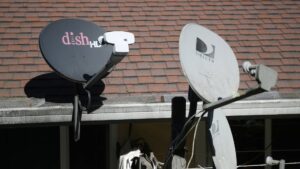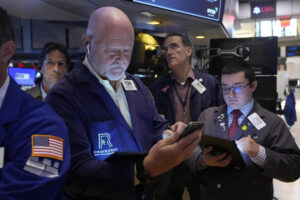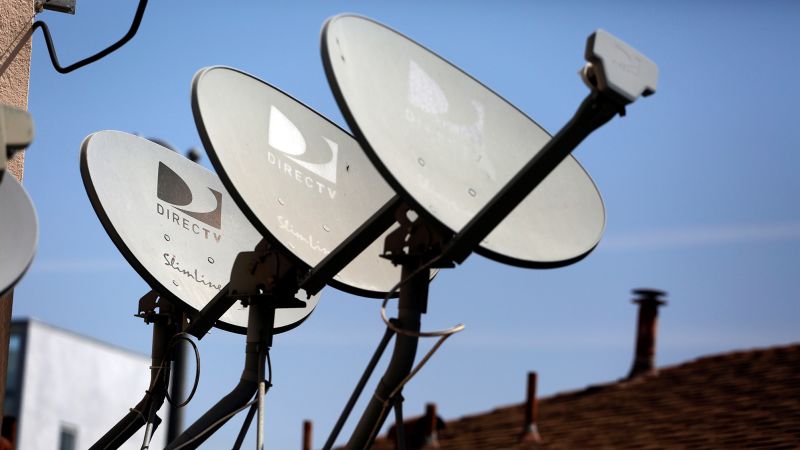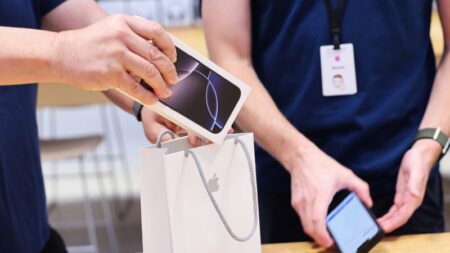DirecTV announced Monday it’s buying rival Dish Network, ending multiple decades of on-and-off talks about the satellite services merging.
The companies have struggled to retain subscribers in the streaming era. As platforms like Netflix, Hulu and Amazon’s Prime Video have gained traction, peeling millions of subscribers away from pay TV with lower price tags and on-demand content, DirecTV and Dish have found it increasingly difficult to justify rising subscription costs, worsening already dramatic cord-cutting.
The companies said the “combination of DirecTV and Dish will benefit US video consumers by creating a more robust competitive force in a video industry dominated by streaming services owned by large tech companies and programmers.”
Under the deal, DirecTV will pay Dish’s owner, EchoStar, just $1 for Dish in exchange for assuming its billions of dollars in debt.
Private equity firm TPG, meanwhile, will acquire AT&T’s remaining 70% stake in DirecTV. The move comes nine years after AT&T purchased the company in 2015 only to sell a 30% stake to TPG in 2021, a DirecTV spokesperson told CNN.
The deal still hinges on Dish bondholders agreeing on net debt lower than $1.56 billion, which a DirecTV spokesperson said the company will look to secure in the coming weeks. Bondholders can accept a lower percentage, take a slightly higher percentage today, or wait it out, which risks Dish ending up in bankruptcy. Dish shared an exchange offering in a press release on Monday.
Dish currently has a $2 billion debt maturity coming up on November 23. To secure funding through a shared revenue stream, TPG and DirecTV will provide Dish with a $10 billion loan that will allow the company to pay off its maturity on November 24.
The agreement provides DirecTV and Dish with greater scale, a DirecTV spokesperson told CNN. From an investment perspective, the combined entity offers a more reliable revenue stream to invest back into products and services, a positive for programmers like Disney. It will also allow the new entity, as a video company, to better work with programmers to achieve skinnier packages and bundles.
The newly merged DirecTV-Dish entity will continue to support the Dish brand for the foreseeable future, the DirecTV spokesperson said. DirecTV does not currently have plans to make changes to the existing Dish or Sling TV brands, meaning that current Dish customers should not be concerned about being forced over to DirecTV.
If they combine, the new service would have about 20 million subscribers with DirecTV accounting for over 11 million of that number. Yet this figure pales compared to DirecTV’s 20.3 million peak TV subscriber base in 2015 when AT&T bought a majority stake in the company.
DirecTV was founded by Hughes Electronics in 1994. AT&T bought the company in 2015 and sold part of the company to private equity firm TPG in 2021.
Dish Network is a subsidiary of EchoStar Corporation (SATS), which also owns Sling TV and rights to wireless spectrum used for cell phone communications. Shares jumped nearly 3% in premarket trading.
Reports and rumors of a merger have been circulating for years. In 2014, Bloomberg reported former Dish chairman Charlie Ergen reached out to former DirecTV CEO Mike White.
But before that, the US government had blocked a proposed $19 billion merger of the companies in 2002 on competitive grounds. Echostar had to pay a $600 million breakup fee to Hughes, which at that time was owned by General Motors.
The agreement Monday offers DirecTV a way of cutting burgeoning costs while offering EchoStar a way to address its debt problem. The deal also strengthens the duo’s foothold in the industry, allowing them to more easily compete with pay TV rivals and streaming services.
Antitrust regulators’ wariness of satellite TV mergers comes from a time when such companies were the only providers available to viewers in suburban and rural areas, which tended to be less dense population-wise and weren’t patronized by cable networks over high infrastructure costs.
Yet, as broadband companies have increasingly provided remote viewers with a breadth of solutions, the competitive repercussions of such mergers have become less acute.
This story has been updated with additional developments and context.
Read the full article here
















